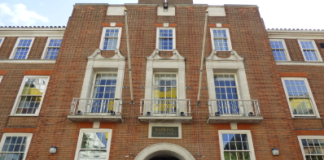Barking and Dagenham Council has insisted it has a “high level of confidence” that it can pay its £1.5billion debt without using council taxpayers’ money.
An investigation by the BBC Shared Data Unit found Barking and Dagenham Council’s debt was now the largest in London and the eighth highest in the country – even higher than Croydon, which has gone bankrupt three times since 2020.
The huge debt is almost entirely down to borrowing used to fund the council’s housing and regeneration projects, as first reported by the Local Democracy Reporting Service (LDRS) in July.
However, a council spokesperson has told the LDRS the income these housing projects generate will cover the full cost of the borrowing.
The spokesperson said: “The projects deliver long-term income streams and there is a high level of confidence that the debt costs can be serviced from the rental income received.”

Image: London Borough of Barking and Dagenham
Council leader Dominic Twomey reported the debt to a meeting of all councillors in July.
The annual treasury report he introduced showed that just over £1bn of the debt is under the council’s investment acquisition strategy (IAS), which it set up in 2016 to fund housing and regeneration projects.
The council told the BBC, for its Shared Data Unit investigation this week into local authority debt, that the costs of paying the debt interest “are funded from the income from the housing rents and from commercial properties within major regeneration schemes”.
It said this meant its “level of council taxpayer funded debt is low” compared with other London boroughs.
The council also said the new housing the fund had paid for – which it says will eventually be 3,700 when completed – had shieled it from the temporary accommodation crisis.
Councils across the country are facing rising demand and costs for providing temporary accommodation to homeless families, often resorting to expensive private rented accommodation.
But the council has been able to use some of the housing it has built to accommodate these families instead.
The council told the BBC: “There is no financial distress at the council, mainly because the council does not face the huge pressures from the cost of temporary accommodation that most councils in London are dealing with at a cost of £4m per day.”
However the council’s treasury report also says the council spent £5.2m more than it planned on servicing its debts last year due to increased construction costs and delayed building projects.
It says the interest it paid on construction debt was “substantially above budget because of the impact of higher borrowing costs for assets under construction”.
And it said that the income it received from Reside – its wholly-owned housing company – was “lower than forecast”. This was because of delays in the construction of the homes by BeFirst, another wholly-owned council company, which meant that “therefore income from Reside is also delayed”.

Image: London Borough of Barking and Dagenham
And speaking last week, Labour councillor Maureen Worby, who is responsible for housing, said she expected the council will have to spend more on temporary accommodation as regeneration projects come to an end.
A council spokesperson told the LDRS that despite the increased construction costs and development delays it is still confident that the income the regeneration projects generate will cover the debt.
They said: “The IAS projects were all supported by very detailed and thorough business cases. The projects deliver long-term income streams and there is a high level of confidence that the debt costs can be serviced from the rental income received.”
The spokesperson added that they did not expect the use of the new housing for temporary accommodation would “adversely impact on total rental income”.
They added: “We want to highlight that the debt costs of the IAS programme are not met from the general fund but from rental income.
“Other councils, including nearby boroughs, have very high debt levels with the revenue costs falling back on to the general fund. This is not the case in Barking and Dagenham.”




